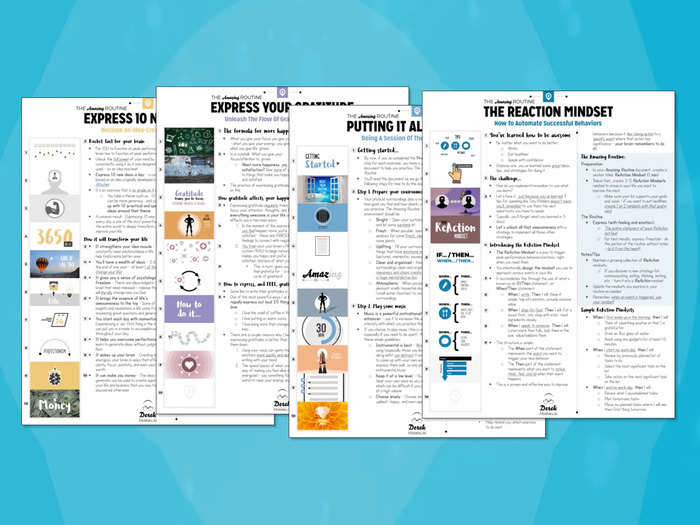- Home
- slideshows
- miscellaneous
- 11 online courses that teach you how to be happier - most are free and taught by Ivy League universities
11 online courses that teach you how to be happier - most are free and taught by Ivy League universities
The Science of Happiness

The Foundations of Happiness at Work

This course focuses on the personal, social, and professional advantages of happiness at work. Faculty from UC Berkeley's Greater Good Science Center (Dacher Keltner, Ph.D., and Emiliana Simon-Thomas, Ph.D.) take the fundamentals from their popular The Science of Happiness EdX class and tailor them to the modern workforce.
Students will learn practical, research-backed strategies to boost happiness at work, how to identify barriers and pitfalls, and how to evaluate levels of happiness within an organization.
The Science of Well-Being

Professor Laurie Santos designed the course Psychology and the Good Life in response to concerning levels of student depression, anxiety, and stress in 2018. It became Yale's most popular class ever.
Santos turned it into an online course, called The Science of Well-Being, in order to share the subject with a wider audience. In it, Santos utilizes positive psychology and the real-life applications of behavioral science. The course debunks myths about what makes people happy and offers a series of challenges that are designed to increase your own happiness and build more productive daily habits.
Foundations of Positive Psychology Specialization

This is a specialization with five courses that introduce students to the foundations of positive psychology and key theories.
The courses include:
- Martin E.P. Seligman's Visionary Science
- Applications and Interventions with Dr. James Pawelski
- Character, Grit and Research Methods with Dr. Angela Duckworth and Dr. Claire Robertson-Kraft
- Resilience Skills with Dr. Karen Reivich
- Positive Psychology Specialization Project
Positive Psychology Specialization Project: Design Your Life for Well-being

This is a follow-up course to the first four in the "Foundations of Positive Psychology Specialization," that's led by Dr. Martin E. P. Seligman. It's encouraged that you take the foundations course (the previous slide) first so you can build on its principles in this one.
In this specialization project, students will apply the key concepts learned in the first four courses, identify opportunities to apply them in their daily life, and evaluate the efficacy of your actions based on subjective and objective measures.
Positive Psychology

This course discusses key research findings in the positive psychology field and includes practical applications of the science to make daily life more meaningful. The syllabus includes topics like "Positive Emotions: The Tiny Engines of Positive Psychology" and "The Delicate Art of Pursuing Happiness."
Positive Psychiatry and Mental Health

In this course, students explore positive psychology's dual approach to mental health, building "strengths, supports, and healthy lifestyles as well as treating illness and distress."
Students will learn about different aspects of "good mental health" as well as an overview of mental disorders, their scientific causes, treatments, and how to seek help and support — ranging from exercise and relaxation techniques to psychiatric medications, psychotherapies, and the role of love and "good" types of work.
The course relies upon Australian experts in psychiatry, psychology, and mental health research as well as "lived experience experts" who have lived with mental illness and share their personal stories.
Crafting Realities: Work, Happiness, and Meaning

This course takes an "inside-out" approach to personal happiness in work and life by having students focus on their own mental models and beliefs "with regard to work, career, success, failure, and identity." The course hones in on how beliefs, thoughts, and emotions influence behavior and experience, how we've already shaped our experiences through our mental state, and practical tools to crafting better futures.
Positive Psychology: Resilience Skills

This positive psychology course revolves around resilience skills in your personal and professional life. Dr. Karen Reivich incorporates foundational research — including protective factors like mental agility and optimism — as well as different kinds of resilience interventions, like cognitive strategies and strategies to manage anxiety and increase positive emotions like gratitude. Students will also hear examples of individuals using resilience skills in their own lives.
The course has a few suggested prerequisites which you can find here.
A Daily Success Routine: Transform Your Life 1 Day At A Time

This course focuses on a daily routine that's designed to connect your actions with how you perceive yourself and who you want to be. It's meant to be highly visual and come with printable "life maps" with main takeaways and actions to take, focusing on things like expressing gratitude and mastering reactions.
Positive Psychology Certification: Live Well and Work Well

This course focuses on understanding character strengths, using tools to become happier and healthier, setting goals aimed at happiness, improving relationships, mindfulness, optimism, and overall well-being.
Read more: 6 places to take free and affordable classes online, on everything from programming to photography
Popular Right Now
Popular Keywords
Advertisement